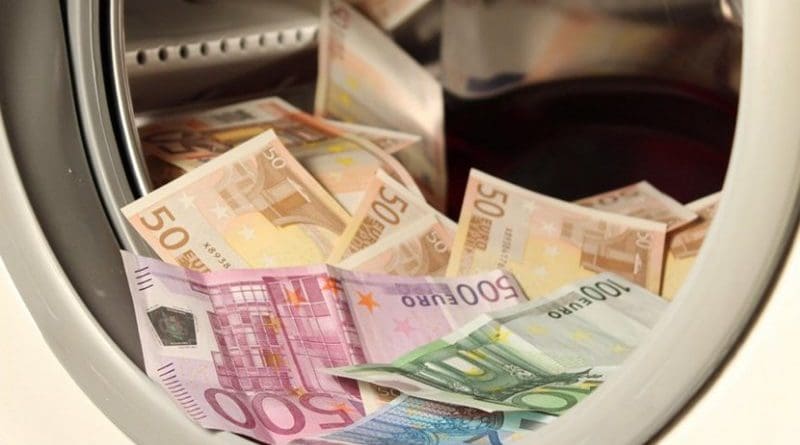Only Five EU Member States Meet Key Money Laundering Deadline
By EurActiv
By Rúben Castro
(EurActiv) — A large majority of members states failed to introduce by 10 January public registers to reveal the true owners of all companies based in their countries, as part of the fight against money laundering, a report published on Friday (20 March) revealed.
Transparency regarding companies’ beneficial owners is one of the key points of the fifth update to EU’s Anti-Money Laundering Directive (AMLD). An analysis of the 27 member states, made by Global Witness, an NGO that focuses on corruption issues, showed that only five countries have implemented a public register which is free to access.
Bulgaria, Denmark, Latvia, Luxembourg and Slovenia presented changes in their law that will permit a free access to public registers. The measure seeks to avoid the mistakes of the past, as happened with the case of Panama Papers and the difficulties to know who the beneficial owners of several shell companies were.
However, there are still 17 member states that do not have a centralised register of the beneficial owners of companies available to the public. This is the case of countries like Czechia, Finland, France, Portugal, Romania and Spain.
This includes countries that claim to have a public register but whose registration requirements make it available only to citizens or residents of a few European countries.
The remaining five countries have a centralised register of the beneficial owners of companies which is available to the public but with significant restrictions that reduce its usefulness in combatting money laundering. These restrictions include setting up a paywall or only being able to search using a company’s tax identification number.
“It’s absolutely correct that tackling COVID-19 is the EU’s current priority but there’s no reason why some countries have been able to bring company ownership out of the shadows, whilst others haven’t”, said Tina Mlinaric from Global Witness.
The campaigner defended a steady hand approach from the European Commission, which should be prepared to impose sanctions on “those that have not met its deadline and enforcing the rules that it has gone to great pains to set”.
At the beginning of February, the Commission wrote to eight member states that had failed to notify it of any implementation measures for the 5th AMLD. This was the case of Cyprus, Hungary, the Netherlands, Portugal, Romania, Slovakia, Slovenia and Spain.
The Commission gave these countries two months to communicate measures that fully transpose the provisions of the directive. Some of them, like Portugal, for example, have transposed some of the measures only in the week after the Commissions’ letter.
The 5th Anti-Money Laundering Directive
The Panama Papers leak in April’s 2016 has shown the need for a revision of the AMLD. Published in the Official Journal of the European Union on 19 June 2018, the member states had until the 10 of January 2020 to transpose the lines of the fifth update of the directive, but some of them are still struggling with some of the main points.
The new directive was designed to respond to the fact that national laws, although with a common core, have their specificities and loopholes that can be used by those who want to launder money.
Some of the main points of the updated version of the directive include the improvement of the cooperation and exchange of information between anti-money laundering supervisors and with the European Central Bank and a broaden the criteria for assessing high-risk third counties and ensure a common high level of safeguards for financial flows from such countries.
According to a study from the European Parliament, the estimated size of the illicit market represents a value of around €110 billion. Europol and Eurojust agencies estimate that money laundering is, in this context, constantly growing.

